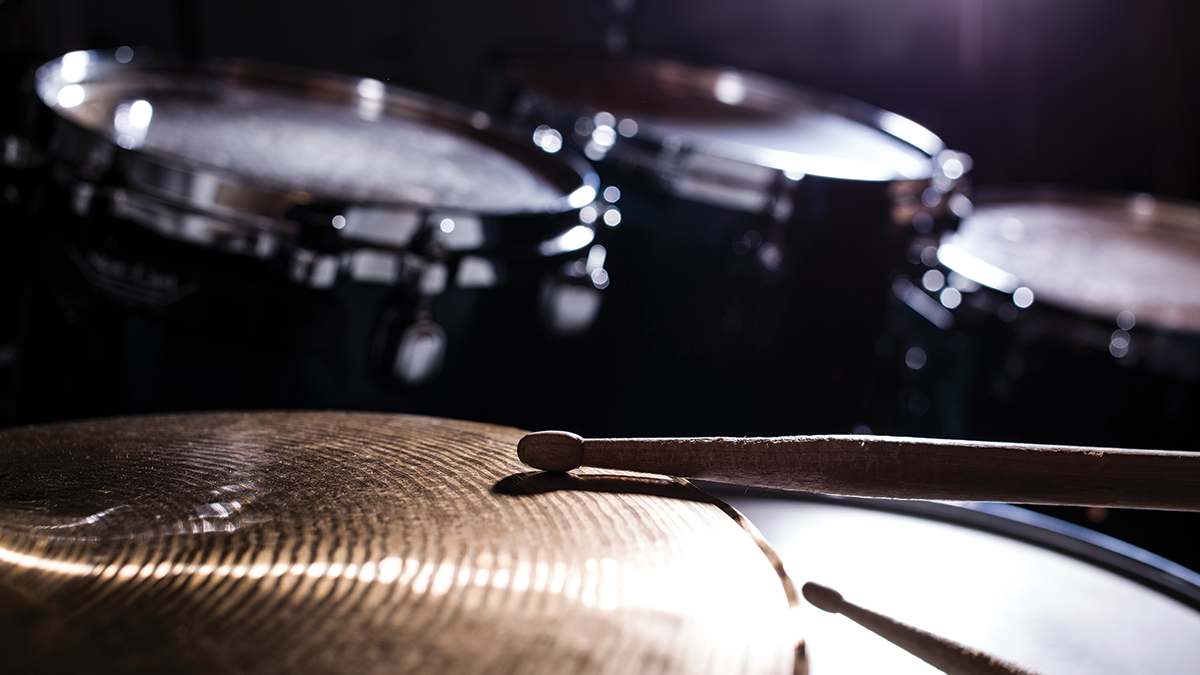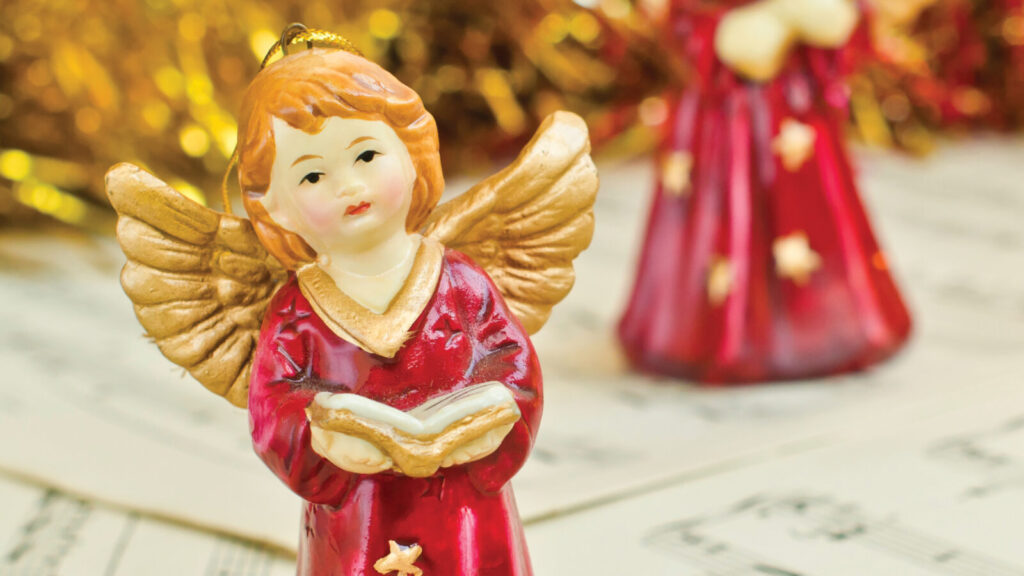Drums in church. These words have provoked everything from mild disagreements to bitter schisms. Conscious of the cultural divisions, I will attempt to offer a biblically-based perspective on the instrument. This perspective is informed by my experience as a professional drummer and one who has played in many churches over the past 13 years. The article begins with a brief history of the drums.1
The modern drum set
The drum set is not one instrument; it is a collection of instruments. The drum set consists of cymbals made from metal blends and drums made from wood over which a synthetic or animal skin is stretched. The drums as we know them—thought of conceptually as one instrument—only came about in the early 1900s. The drum set’s inception was made possible when the German-American Ludwig brothers popularised the first commercially successful pedals that drummers operate with their feet. Before this point, drums and cymbals were played separately by different musicians. Individually, these instruments date back to ancient times.
Drums and cymbals in the Bible
Drums and cymbals are mentioned many times in the Bible. The ancient biblical drums were timbrels and tambourines. A timbrel is a wooden frame drum with an animal skin stretched over it. A tambourine adds metal jingles to the wooden frame. Exodus 15:20 and Psalm 81:23 tell us that these drums were struck with sticks and beat with hands. Psalm 150:54 indicates that cymbals in Bible times were clashed against each other.
A common use for drums and cymbals in the Bible was worship. Here are a few texts that highlight this:
Exodus 15:20,21*
Then Miriam the prophetess, the sister of Aaron, took the timbrel in her hand; and all the women went out after her with timbrels and with dances. And Miriam answered them:
“Sing to the Lord,
For He has triumphed gloriously!
The horse and its rider
He has thrown into the sea!”
1 Samuel 10:5
After that you shall come to the hill of God where the Philistine garrison is. And it will happen, when you have come there to the city, that you will meet a group of prophets coming down from the high place with a stringed instrument, a tambourine, a flute, and a harp before them; and they will be prophesying.
2 Samuel 6:5
Then David and all the house of Israel played music before the Lord on all kinds of instruments of fir wood, on harps, on stringed instruments, on tambourines, on sistrums, and on cymbals.
1 Chronicles 13:8
Then David and all Israel played music before God with all their might, with singing, on harps, on stringed instruments, on tambourines, on cymbals, and with trumpets.
1 Chronicles 15:28
Thus all Israel brought up the ark of the covenant of the Lord with shouting and with the sound of the horn, with trumpets and with cymbals, making music with stringed instruments and harps.
1 Chronicles 25:1
Moreover David and the captains of the army separated for the service some of the sons of Asaph, of Heman, and of Jeduthun, who should prophesy with harps, stringed instruments, and cymbals. [pullquote]
2 Chronicles 5:12-14
. . . and the Levites who were the singers, all those of Asaph and Heman and Jeduthun, with their sons and their brethren, stood at the east end of the altar, clothed in white linen, having cymbals, stringed instruments and harps, and with them one hundred and twenty priests sounding with trumpets—indeed it came to pass, when the trumpeters and singers were as one, to make one sound to be heard in praising and thanking the Lord, and when they lifted up their voice with the trumpets and cymbals and instruments of music, and praised the Lord . . .
2 Chronicles 29:25
And he stationed the Levites in the house of the Lord with cymbals, with stringed instruments, and with harps, according to the commandment of David, of Gad the king’s seer, and of Nathan the prophet; for thus was the commandment of the Lord by His prophets.
Ezra 3:10
When the builders laid the foundation of the temple of the Lord, the priests stood in their apparel with trumpets, and the Levites, the sons of Asaph, with cymbals, to praise the Lord, according to the ordinance of David king of Israel.
Nehemiah 12:27
Now at the dedication of the wall of Jerusalem they sought out the Levites in all their places, to bring them to Jerusalem to celebrate the dedication with gladness, both with thanksgivings and singing, with cymbals and stringed instruments and harps.
Psalm 68:25
The singers went before, the players on instruments followed after;
Among them were the maidens playing timbrels.
Psalm 81:1,2
Sing aloud to God our strength; Make a joyful shout to the God of Jacob.
Raise a song and strike the timbrel, The pleasant harp with the lute.
Psalm 149:3
Let them praise His name with the dance; Let them sing praises to Him with the timbrel and harp.
Psalm 150:4,5
Praise Him with the timbrel and dance;
Praise Him with stringed instruments and flutes!
Praise Him with loud cymbals;
Praise Him with clashing cymbals!
Jeremiah 31:4
Again I will build you, and you shall be rebuilt, O virgin of Israel! You shall again be adorned with your tambourines, And shall go forth in the dances of those who rejoice.
The real reason for the controversy
If drums are biblical, why do people condemn them? In my experience, the following three reasons are most common.
1. Bad experience
The drums can easily be played badly; they can be played too loudly, out of time, or with too many fills and flourishes. An unskilled drummer can disrupt the musical worship experience of churchgoers. For some, one such bad experience can be enough to condemn the instrument. Even so, other instruments heard in church can be played badly in the same manner. There is no inherent problem with the instrument; the defect lies in the player’s ability. The skilled drummer can tastefully accompany even most hymns.
2. Bad association
Many Adventists associate the drums with music that leads people astray from God. Certainly the drums can be used to worship Satan. But so can the organ, the guitar or the piano. The Bible shows that the wicked use exactly the same instruments as the righteous.5 What distinguishes the use of an instrument is the heart of the player. Is he or she playing with the intention of worshipping God?
3. Condemning any music in which drums are used as a matter of principle
Holding such an opinion is a matter of taste not Scripture. Unlike the Bible, taste changes, music changes and musical instruments change. I dare say that many of us would describe ancient Israelite music—music used to worship God—as a dissonant jangling and clanking. One of the reasons for this is that the Western method of tuning that divides the octave into equal intervals was only widely adopted in the 18th century.6 Biblical music would have sounded “out of tune”. Likewise, it is doubtful that the Israelites would have appreciated our hymns, songs or modern instruments.
Conclusion
There can be no doubt that the use of drums and cymbals in worship is found in the Bible. The many passages I have cited prove this. I would urge those who condemn the drum set to not place culture and musical taste above Scripture. I would urge drummers who play badly to get lessons. Instead of throwing rocks at a particular instrument, our focus should be on making music that glorifies God and is presented before Him with skill.
*All Bible passages are quoted from the NKJV.
Daniel Faber holds a Bachelor of Music with First Class Honours and is also a graduate lawyer. His drumming has been heard on national radio and television.






